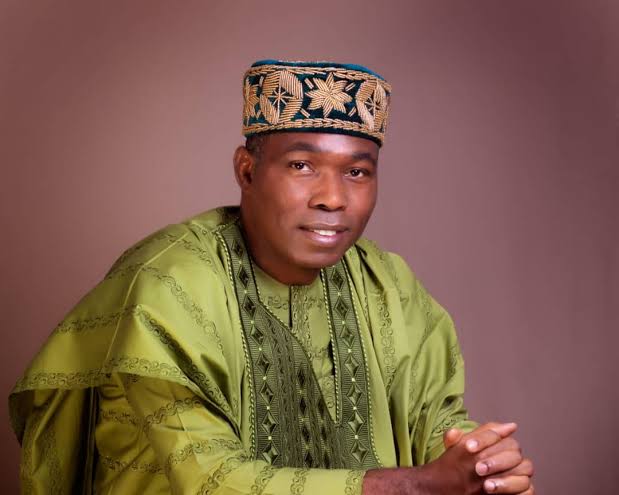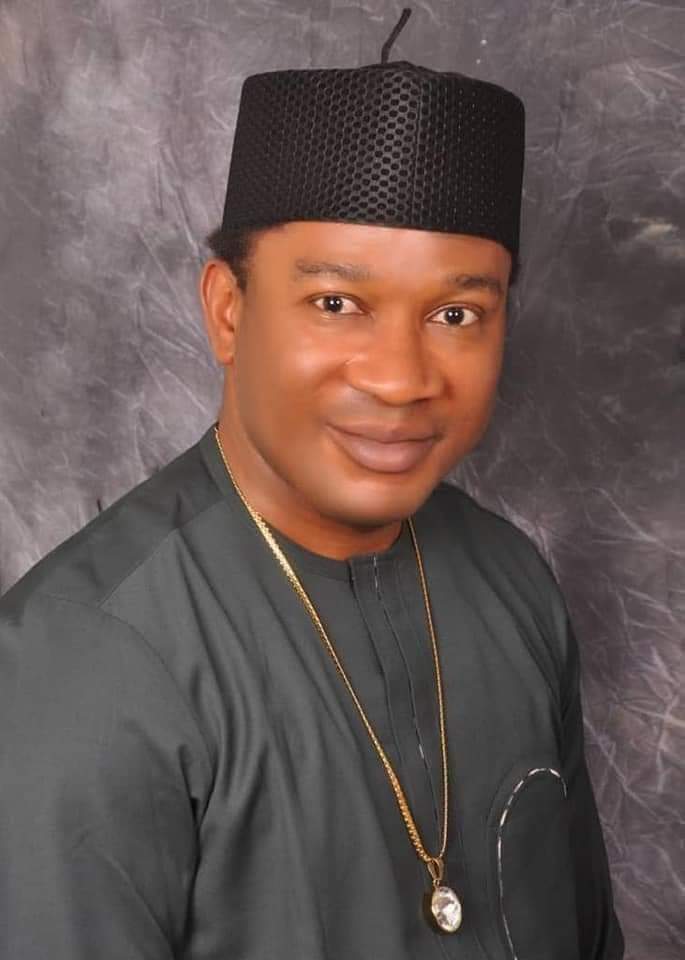The presidential candidate of the Social Democratic Party (SDP), in the 2023 general election, Adewole Adebayo has weighed in on the perennial crises in Nigeria’s petroleum sector
In an interview on TVC’s “Politics On Sunday,” Adebayo attributed the sector’s challenges to a combination of logistical, arbitrage, and structural problems.
Excepts,
I’ve heard you discuss the petroleum sector before, and many people argue that we shouldn’t be facing these perennial crises in the oil sector. What do you think is responsible for this ongoing crisis?

If we’re viewing this situation purely from a market perspective, where it’s just about demand and supply, then we need to look at the economics of the petroleum industry globally. This perspective would require us to ignore the fact that Nigeria has crude oil and to consider a scenario where we have no crude. In such a case, we would be entirely dependent on the international petroleum market. The questions then become: Do we import? If so, how do we pay for it? Or do we refine locally? If we refine locally, then we need to consider the costs in Naira compared to the Dollar.
There are many factors to consider, such as how to bring the crude into the country and how to distribute it across the nation. These are fundamental questions that every country must address, regardless of their geological resources or abundance of oil. Unfortunately, Nigeria has struggled to find answers to these questions.
In the First Republic and during the military regimes, the government approached these issues from a public sector point of view. The belief was that it was the government’s responsibility to keep the economy running, and since petroleum products are essential to this, it became a national security issue. This led to the creation of four refineries.
However, this approach brings up more questions: Why couldn’t we maintain the refineries? Why didn’t we build more as the population grew? Why couldn’t we improve the pipeline and storage infrastructure? Why did bridging, which was meant to be a temporary solution, become a permanent feature, resulting in tankers crisscrossing the country? And how did we end up in a situation where our refinery capacity is almost nonexistent, forcing us to rely on imports, which then strain our public finances?
The answers to these questions depend on the ideology of the leaders. My ideology is that we should continue treating petroleum as a national security priority, just as the United States, Russia, and the United Kingdom do. If we take this approach, then the government, whether through market rules or policy tools, must ensure that petroleum products are reliably available, delivered safely, and without breaking the budget.
For years, we’ve been hearing about the potential benefits of the Dangote Refinery. People believed that once the Dangote Refinery started production, it would significantly alleviate the problems in the sector. However, even Dangote has expressed concerns, which indicates that the challenges in this industry are more complex than many realized. I used to think that with a refinery processing 650,000 barrels per day, many of our problems would be solved, but that’s not the case.
The issue is that we’re equating an entire industry with one company. Dangote is just one refinery out of many that we need. The fate of a country cannot rest on one company unless we’re practicing crony capitalism. Proper economic planning would see the Dangote Refinery as just one component in the larger energy supply chain.
Even if the Dangote Refinery were fully operational, which I’m not sure it is yet, we would still face logistical challenges. The refinery is located in Lagos, but we need to distribute its products to places like Sokoto, Zamfara, Benue, and Mubi. The transportation and logistics issues within the country, including the absence of rail lines, will continue to impact the sector.
As a policy leader, I would give encouragement to Dangote Industries, but I would also ensure that policies are not tailored to benefit just one company. There should be general rules that support the establishment of refineries in Nigeria, with clearly defined policies that give everyone equal rights to enter the industry. We must avoid privatizing profits and socializing losses, where taxpayers bear the costs while private companies reap the rewards.
Before we focus on the Dangote Refinery, which, from my understanding, does not yet have an operational license, we should consider what happened to the four public refineries. Three of them have been undergoing maintenance for decades. How is it that they’re still not operational? It’s possible that the Port Harcourt or Warri refineries may become operational before any private refineries do.
In discussing the energy mix, the government’s role should be to create stable policies that attract multiple players into the sector. While the government should maintain oversight, it doesn’t necessarily have to run everything. There are various methods governments around the world use to manage their assets, including concessioning operations and maintenance to private interests. However, I believe that outright privatization, where public assets are handed over to private entities, is not the best approach for Nigeria.
Our experience with privatization has often led to asset stripping, where private entities profit from easy assets and then abandon the rest. This is not a sustainable model. Instead, we need to ensure that the best and most patriotic individuals are recruited to run the public sector efficiently.
Why does Fuel Costs Vary Across Nigeria?
It’s a structural problem, and addressing it requires more than a one-dimensional analysis. The high prices are due to two main factors: the logistics of landing fuel and the fluctuation in the Naira’s value. The government created this structural problem by focusing on controlling street prices instead of ensuring a stable supply.
Subsidy is not entirely gone. The current administration has simply moved the subsidy outside the budget, using the dividends from NNPC to fund it instead. I’m not in favor of removing the subsidy because the structural problems haven’t been addressed. We haven’t invested in alternatives like railways, maritime highways, or public transportation that could reduce reliance on petrol. If these investments were made, the majority of people would have no reason to drive, significantly reducing petrol consumption.
Additionally, we need to make sure that our refineries are operational and not just cost centers. If the government addresses these issues, the private sector will also be more inclined to invest in refineries. However, private investors face challenges due to the weak Naira, which affects their ability to sell domestically at competitive prices.
To stabilize petroleum prices, we need a stable Naira and a reliable supply. This requires an efficient government focused on solving the problem rather than profiting from it. A four- to five-year plan with clear communication to the public could make Nigeria energy-sufficient domestically by 2028. In the meantime, we need to manage subsidies effectively to keep petroleum prices within reach for ordinary Nigerians.
How do we balance the push for compressed natural gas (CNG) and the continued reliance on petroleum?
The federal government needs to create a gas market with proper incentives. We’ve been discussing CNG for a long time, but it’s time to implement an automotive policy requiring that all vehicles are capable of using both petrol and gas. Many countries have already done this, and it’s achievable here.
We should also invest in public transportation. Nigeria hasn’t reached the level where every citizen needs a car. Setting up factories to produce public buses that run on CNG or electric would generate employment and reduce petrol consumption. A national program, not just a political palliative, is needed to make this a reality. With the right approach, we could reduce petrol consumption by 75% within one administration’s term.




With the whole thing which appears to be developing inside this particular subject matter, your points of view are somewhat radical. Having said that, I appologize, because I do not subscribe to your whole idea, all be it stimulating none the less. It looks to me that your comments are actually not entirely rationalized and in fact you are yourself not even entirely confident of the assertion. In any event I did take pleasure in reading through it.
jfqwfg
km1mul
e3af6j
2mmxxj
v4ty7a
ixpku7
494nkb
Về dịch vụ CSKH, slot365 com theo đuổi tôn chỉ “Ưu tiên trải nghiệm khách hàng”, từ đó đảm bảo mang tới cho bạn những giây phút giải trí có 1-0-2. Chuyên viên tư vấn tại nhà cái chúng tôi luôn được đào tạo bài bản, sẵn sàng phục vụ hội viên mọi lúc mọi nơi.
xn88 slot sở hữu thư viện game bài đa dạng với hàng trăm lựa chọn, từ các game truyền thống đến phiên bản hiện đại. Dựa trên dữ liệu người chơi, ba thể loại được yêu thích nhất là Baccarat, Poker và Xóc đĩa.